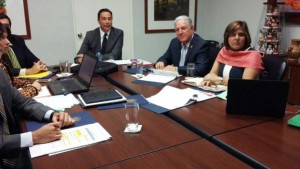EspañolThe Panamanian government has once again extended the deadline on “temporary” price controls on basic food products. Panama enacted the emergency price controls on July 7, 2014, through Executive Decree 165. Originally, the measure was to last only six months, but on January 7, President Juan Carlos Varela extended the order until July 7 with Executive Decree 303.

As the new deadline approaches, Commerce and Industry Minister Miletón Arrocha announced on Monday, June 15, that the price freeze will continue to until December 2015. Arrocha also says the government is considering extending the controls to four more products: coffee, pasteurized milk, sugar, and oil.
Panamanian officials say consumers were able to save US$48 per month on average because of the controls, despite their initial promise of $58 in savings.
However, the chairwoman of Panama’s Association of Ethical Consumption, Yakarta Ríos, says the price-control measures have caused a decline in product quality. Instead of eating fresh fish like cojinúa or jurel, Panamanians have turned to canned sardines, Ríos claims.
Jorge Arango, minister of Agricultural Development, noted an increase in the price of meat and milk products. In February and March, companies such as Industrias Lácteas S.A., Estrella Azul, and Empresa Panameña de Alimentos EPA-Bonlac sent a request to the Consumer Protection and Defense of Competition Authority (ACODECO) demanding they be allowed to increase their prices. Their request, however, has yet to be reviewed, according to Arango.
The minister says the most commonly cited reasons companies request authorization to increase their prices are higher fuel and electricity costs.
As for reports of shortages on regulated products, Arrocha says multiple factors are at play. The low prices are incentivizing consumers to purchase certain products, he says, causing them to sell more quickly than stores can keep up with.
Despite the displeasure expressed by business owners, unions, and consumer-advocacy groups, Arrocha says the government has succeeded in making 22 basic food products cheaper for Panamanians.
Sources: Panamá América.
 Versión Español
Versión Español












